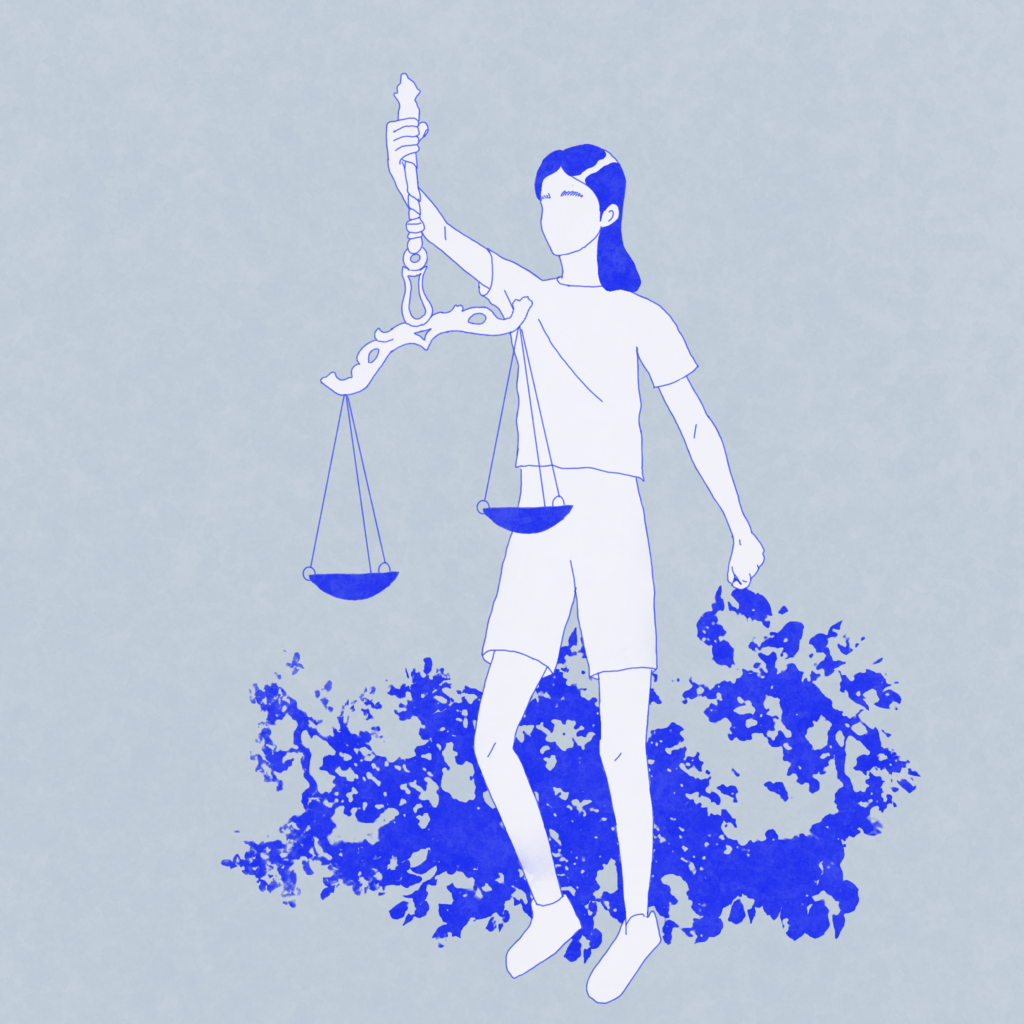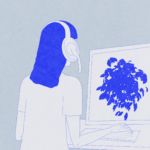FREE JUSTICE – DREAM OR REALITY?

Ilustrimi: Argjira Kukaj
“Free legal aid will be provided to those who do not have sufficient financial means, if such aid is necessary to ensure effective access to justice”, is written in point 6 of article 31 of the highest juristic act — the Constitution of the Republic of Kosovo.
Although it is a fundamental right guaranteed by the Constitution, many citizens are not aware that they are entitled to free legal aid if they lack financial needs. In addition to the lack of information, the situation is worsened by the dark perception surrounding the current legal system and low confidence in its efficacy. These factors combined impact people’s hesitation to demand what is rightfully theirs. They can also contribute to increasing skepticism, which only pushes citizens to remain silent, far from access to justice.
It turns out that, as with many other issues, the legal guarantees do not align with reality.
In Kosovo, the Agency for Free Legal Aid (AFLA) is the main institution that provides such assistance, a functional institution since 2006, within the Ministry of Justice. The agency operates with seven regional offices in Pristina, Mitrovica, Pejë, Prizren, Gjilan, Gjakovë and Ferizaj and several mobile offices, some of which are financed from other sources besides the budget of Kosovo. In order to qualify for assistance, there is a set of criteria to fulfill, which, together with the contact number of AFLA, is accessible information you can find with just one click on the internet.
This all seems simple, right?
However, the problem lies right here. How can you ask for the help you have a right to, when you don’t know that such help exists?
If you look at it from a perspective of a person outside the legal domain, accessing and obtaining information about this possibility is not quite simple, despite the fact that we live in a digital age. Many citizens are not informed about the existence of this service or do not know how to look for it. Consequently, they turn to expensive alternatives, or, even worse, they give up.
Evidently, this lack of information disproportionately affects women. In the annual report for 2022 by AFLA, it is stated that out of 5,861 cases that were offered assistance throughout the year, only 2,619 were women. So less than half. In another study in 2022 by the Kosovar Institute for Local Government (KILG), an institute focusing on improving policies at the municipal level, this problem is only proven further.
The study was carried out to provide a complete overview of the difficulties and challenges that underrepresented groups face when it comes to access to justice. To conduct this study, 367 citizens from the following target groups were surveyed and interviewed: women, people with disabilities, LGBTIQ+ individuals, Roma, Ashkali, Egyptian, Serbian, Turkish and Bosnian non-majority communities, the elderly and people with low financial income.
A significant percentage of women are not informed about the services of this agency. Out of 195 women surveyed, 25% stated that they are little informed, while 50.49% said that they are very little informed about free legal aid. In the same report, 31.43% of women state that this aid “would not help them” and 28.57% state that they “did not know where to seek advice”.
Problems of this type have also been identified in annual reports by AFLA itself. The impossibility of extending aid to the entire territory of the Republic of Kosovo, the infrastructural obstacles, the lack of officials, the insufficiency of the budget, and the impossibility of wider awareness of the citizens, have been identified as problems for a long time. However, it seems that no matter how much time passes, the problems continue to remain, even though they have been identified. They are not being resolved. The Ministry of Justice, which is responsible for the work of the agency, continues to emphasize that free justice is improving, although it is not offering solutions to these difficulties.
Another source where such legal aid can be accessed in Kosovo are non-governmental organizations. Although not many, IKD, CLARD, INJECT and some other organizations work to support those in need of such aid. However, due to the lack of financial support and licensing from AFLA itself, the help provided by these initiatives remains a significantly limited alternative.
For women in Kosovo, access to justice is still not comprehensive. The chain of guilt is being used as a way out here too. Everyone blames the other and we are left without answers again. Although we are living in a time when information and technology are available to almost everyone, it is the duty of the institutions themselves that the services are easily accessible to all those who need them.
A task that is clearly not being fulfilled.
In the end, what is the solution? Where should the women in Kosovo who cannot afford the financial burden of justice, and who live in constant violence and oppression go? Even if they seek legal help from the state, who looks after their welfare during that process?
Surrounded by a patriarchal environment, where gender-based violence continues to be present everywhere, where access to inheritance remains low and in an environment where they are often abandoned by institutions, women are among the groups most in need of access to free legal aid. Also, they are mostly affected by the weak functioning of institutions like AFLA.
In Kosovo, problems can go unaddressed for long periods of time. As with many issues, institutions do not take responsibility for the injustices they themselves cause. As usual, the burden falls on vulnerable groups. No one is held responsible, but in fact, everyone is responsible. The institutions share the blame among themselves as if it were a game, while the citizens remain in this labyrinth of challenges, stuck on a road that they do not know how to exit. Will free justice remain just a utopian vision far from reality?
Author: Liza Rexhepi


